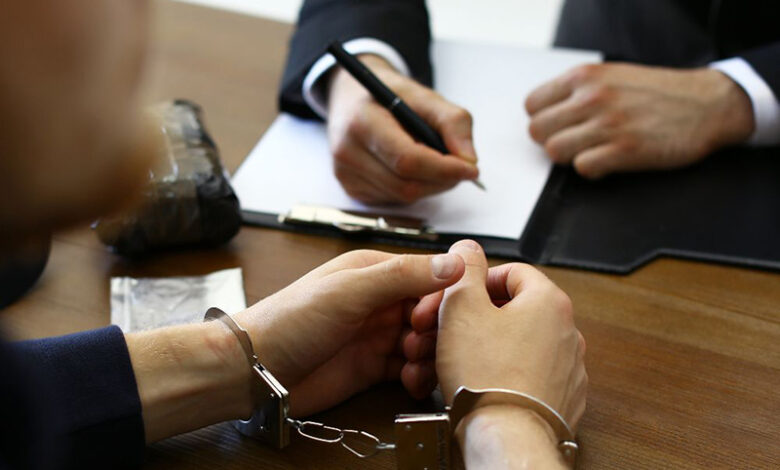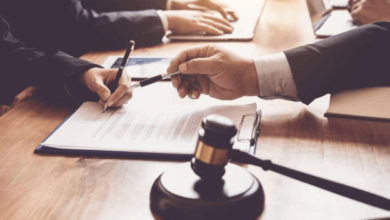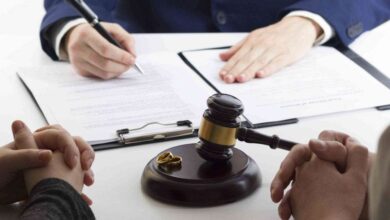From Arrest to Resolution: Demystifying Criminal Charges

Navigating the legal system can feel overwhelming, especially when facing criminal charges. Understanding the basics is crucial. A criminal charge is an accusation made by the government that someone has committed a crime. This can range from minor infractions to serious felonies. The consequences can be life-altering, affecting not just legal standing but also personal relationships and future opportunities. When these charges arise, securing a knowledgeable criminal defense lawyer is essential. This professional guides you through the complexities of the law, ensuring your rights are protected. They focus on building a strong defense, exploring every possible option to achieve a favorable outcome. The legal process involves several stages, including arrest, arraignment, and trial. Each step requires careful attention and strategic planning. Gaining a clear understanding of these elements helps in dealing with the situation more effectively, creating a path forward amidst the challenges of the legal landscape.
Understanding Criminal Charges
Criminal charges can be categorized into three main types: infractions, misdemeanors, and felonies. Each type carries different implications and potential penalties:
- Infractions: Minor offenses such as traffic violations. Typically result in fines.
- Misdemeanors: More serious than infractions. Could lead to jail time of up to a year.
- Felonies: Serious crimes like robbery or murder. Penalties can include lengthy prison sentences.
Understanding the type of charge is crucial in determining the next steps and potential consequences. This knowledge enables individuals to make informed decisions about their defense strategies.
The Legal Process
The journey through the legal system involves several key stages. Each stage requires understanding and preparation:
- Arrest: The process begins with an arrest, where law enforcement takes someone into custody based on probable cause.
- Arraignment: The accused appears in court. Charges are read, and a plea is entered.
- Pre-Trial: Both sides gather evidence and witness lists. Possible plea bargains are discussed.
- Trial: Evidence is presented before a judge or jury. The outcome determines guilt or innocence.
- Sentencing: If found guilty, the judge delivers a sentence based on the crime and circumstances.
Each of these stages involves complex legal processes and decisions. Familiarity with them enhances one’s ability to navigate the legal system effectively.
Penalties and Consequences
Penalties vary based on the nature and severity of the crime, as well as the individual’s criminal history. It’s crucial to understand potential penalties to prepare adequately. Here’s a comparison table of typical penalties for different charge types:
| Charge Type | Typical Penalties |
| Infractions | Fines, no jail time |
| Misdemeanors | Fines, up to one year in jail |
| Felonies | Hefty fines, over one year in prison |
Understanding these penalties is key to assessing one’s situation and working towards a favorable outcome.
The Role of a Criminal Defense Lawyer
A criminal defense lawyer plays an essential role in navigating the legal system. They offer expert advice, ensuring that one’s rights are upheld throughout the process. Here are three primary responsibilities of a defense lawyer:
- Defend the accused: They work to refute the charges or reduce the severity of the penalties.
- Negotiate plea deals: They may secure a more lenient sentence or reduced charges through negotiations.
- Guide through legal procedures: Their expertise helps in understanding and complying with legal requirements.
With such responsibilities, securing a skilled defense lawyer can significantly influence the outcome of the case.
Moving Forward
Facing criminal charges is daunting, but understanding the process and seeking appropriate legal counsel can make a substantial difference. By staying informed, individuals can navigate the complexities of the legal landscape with greater confidence. For more detailed information on legal rights and criminal procedures, the U.S. Department of Justice provides comprehensive resources. Additionally, the United States Courts website offers insights into court procedures and legal rights.
As you navigate these challenges, remember that knowledge and preparation are your greatest allies. With the right approach, it’s possible to manage the situation and work towards a positive resolution.




